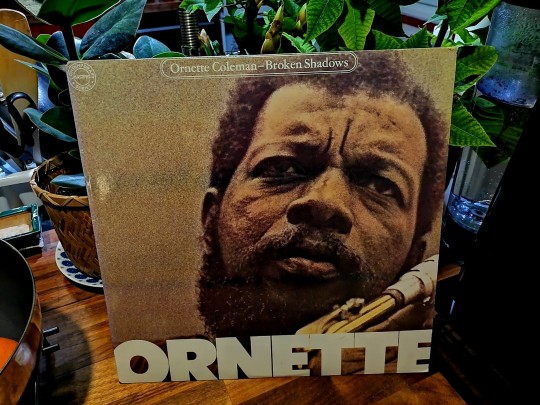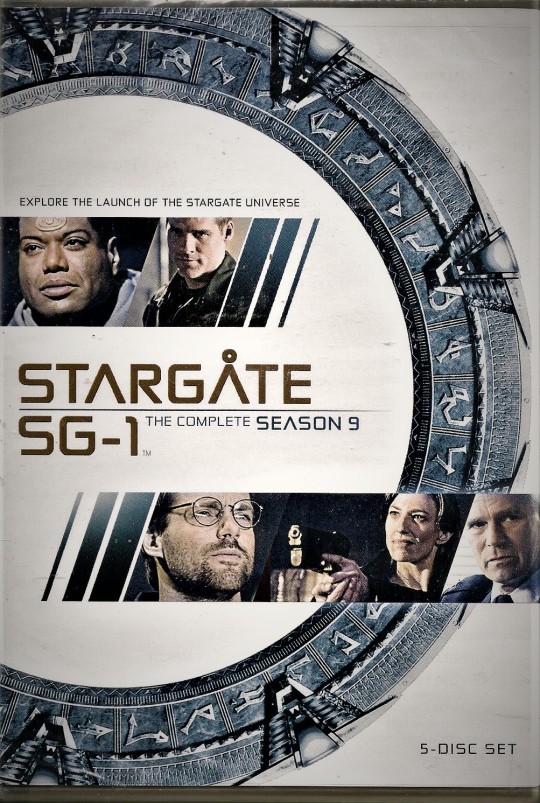#Don Redman
Text
Lucky Thompson: A Forgotten Titan of Jazz
Introduction:
Eli “Lucky” Thompson, born one hundred years ago today on June 16, 1924, in Columbia, South Carolina, remains one of the most fascinating yet often overlooked figures in jazz history. A virtuoso saxophonist with a career that spanned over three decades, Thompson was known for his lyrical style, technical prowess, and life story that is as complex as his music. This blog post delves…

View On WordPress
#Billy Eckstine#Charlie Parker#Count Basie#Dizzy Gillespie#Don Redman#Erskine Hawkins#Jazz History#Jazz Saxophonists#Kenny Clarke#Lionel Hampton#Lucky Millinder#Lucky Thompson#Miles Davis#Milt Jackson#Stan Kenton#Thelonious Monk
8 notes
·
View notes
Text

American jazz musician, arranger, bandleader, and composer Don Redman
8 notes
·
View notes
Text

1941 - Lionel Hampton orchestra & Don Redman orchestra - Michigan State Fairgrounds - Detroit
2 notes
·
View notes
Text




Harry RADERMAN's Dance Orchestra "Hallelujah" / The BIG ACES "Cherry"
(split 10" 78rpm. Odeon. 193? / rec. 1927/28) [US]
youtube
0 notes
Text
Throwback: Fletcher Henderson-New King Porter Stomp

Fletcher Henderson recorded Jelly Roll Morton's "King Porter Stomp" multiple times with his orchestra starting in 1925. Morton introduced the song with his inaugural 1923 recording but the popularity of Henderson's version led the way to it becoming a jazz standard. Henderson was a known bandleader who had been pioneering swing music with Dewey Redman during his residency at the Roseland Ballroom in New York in 1923. His band became very influential with stars like Duke Ellington referencing them as inspiration. Henderson and Redman's jazz innovations included the addition of a young Louis Armstrong in the group for a year. The work of Henderson and Redman helped kick off dances like the Lindy Hop and the jitterbug which outlived the swing era.
"King Porter Stomp" was essential to the development of jazz music but it was Benny Goodman's recording of Henderson's arrangement that made it a hit. Henderson's influence as an arranger grew after he went to work providing charts for Goodman's band during their job on NBC's Let's Dance. His own band was the best in the state but it was difficult for them to survive because of economic struggles. The pianist, composer and bandleader did not become famous but his work as an arranger helped jazz evolve from the Dixie to the swing era. The rhythmic cohesion of swing music was a prelude to the musical concept of the groove which is found most pop music such as R&B, hip-hop and funk. Fletcher Henderson died in 1952 and in 1982 his childhood home in Cuthbert, Georgia was listed on the National Register of Historic Places.
youtube
1 note
·
View note
Text

"Broadcasts" is a bootleg Ornettte Coleman LP. w/ my father, Don Cherry, Dewey Redman, Ed Blackwell. I've never heard & have no idea what's on it.
5 notes
·
View notes
Text

Summer 2010 Mixtape:
Don Patterson “The Good Life”
AZ “Essence”
Radio Citizen “The Hop” (Hudson Mohawke RMX)
Menahan Street Band “Make The Road By Walking”
Bishop Lamont “Grow Up”
Redman “Smoke Buddha”
D’Angelo “Everybody Loves The Sunshine”
Vic Juris “Roadsong”
Jose James “Desire” (Moodymann RMX)
Warren G “This Is The Shack”
Kubus & Rico “Buitenbad”
Maynard Ferguson “Mister Mellow”
Sound Dimension “Real Rock”
J Dilla “Won’t Do”
Muhsinah “Always” (INS)
Madvillian “Papermill”
MF Doom “Hey!”
Vic Juris “Horizon Drive”
Nuyorican Soul “You Can Do It (Baby)”
El Michels Affair “Hung Up On My Baby”
Blockhead “Which One Of You Drank My Arnold Palmer?”
C.K. Mann “Fa Wokoma Mame”
MFSB “T.L.C.”
Nas & Nature “Ultimate High”
Orlandivo “Onde Anda O Meu Amor”
Brook Benton “Mother Nature, Father Time”
Manfredd Mann “Mighty Quinn”
Shirelles, The “Soldier Boy”
ADC “Roma 1943”
Panacea “King Of The Jungle (Burnout)”
Diskore & Minion & Resurrector Darkmatter Soundsystem
Base Force One “Dynamite & Fire”
Diskore Extreme Electronics And Splintered Beats (live)
Parasite “Corporate States Of America”
Paul Snowden “Payback MF”
Society Of Unknowns “Vector”
Invisible Records Lo-Fibre Compilation
Chameleoness “Yes Now, No Later”
Kovert “Soundboy”
Tim Hecker “Days Of Your Lives”
Clock DVA The Sex Beyond Entanglement
Prurient “Spinning Wheel”
Florian Hecker Acid In The Style Of David Tudor
Prurient “Ivory Tower”
Tim Hecker “Blood Rainbow”
Clock DVA Fragment
Jewish Uprising Desperate Prince Charming
Monorail Trespassing Project Housing
Cell Block “Fuck What Nietsche Said”
Tim Hecker “I’m Transmitting Tonight”
#omega#music#playlists#mixtapes#personal#noise#electronic#breakbeat#industrial#Tim Hecker#Monorail Trespassing#Clock DVA#Prurient#Panacea#Shirelles#Manfredd Mann#Brook Benton#Nas#Vic Juris#MF Doom#Madvillain#J Dilla#Maynard Ferguson#Warren G#Redman#hip-hop#rap#Don Patterson
4 notes
·
View notes
Text
DON CHERRY - DEWEY REDMAN - CHARLIE HADEN - EDDIE BLACKWELL / OLD AND NEW DREAMS
#music#vinyl#records#jazz#newjazzthings#レコード#ジャズ#new jazz things#アナログレコード#ジャズレコード#アナログ#音楽#ニュージャズシングス#don cherry#charlie haden#ed blackwell#dewey redman#record shop#record store
2 notes
·
View notes
Text

Follow my main twitter
#travis scott#fashion#supreme#hiphop#rap#talk to me#dm me#don toliver#cactus jack#redman#twitter#x#elon musk#social media
12 notes
·
View notes
Video
youtube
(via Don Redman & Orchestra - Chant Of The Weed (1931)
10 notes
·
View notes
Text
It was 15 years ago today: Allen Toussaint's Nonesuch debut album, The Bright Mississippi, was released. Toussaint explores the work of his New Orleans forebears on a soulful, live-in-the-studio jazz set, produced by Joe Henry, performing with Don Byron, Nicholas Payton, Marc Ribot, David Piltch, Jay Bellerose, and special guests Brad Mehldau and Joshua Redman.
"Exquisite" —Washington Post
#allen toussaint#the bright mississippi#new orleans#jazz#piano#joe henry#don byron#nicholas payton#marc ribot#david piltch#jay bellerose#brad mehldau#joshua redman#nonesuch#nonesuch records
1 note
·
View note
Text
Fletcher Henderson: Architect of Swing and Jazz Innovation
Introduction:
In the pulsating heart of the Jazz Age, where the rhythms of the Roaring Twenties reverberated through the streets of Harlem, emerged a musical maestro whose influence would shape the course of jazz history. Fletcher Henderson, a visionary bandleader, pianist, and arranger, stands as a linchpin in the evolution of jazz, particularly in the ascendancy of the Swing Era. This blog…

View On WordPress
#Benny Carter#Benny Goodman#Big Band Jazz#Don Redman#Fletcher Henderson#Fletcher Henderson Orchestra#Jazz Composers#Jazz History#Jazz Pianists#Louis Armstrong#Swing
4 notes
·
View notes
Audio
C 1935
7 notes
·
View notes
Text
Review: Seed of Chucky (2004)
Seed of Chucky (2004)
Rated R for strong horror violence/gore, sexual content and language

<Originally posted at https://kevinsreviewcatalogue.blogspot.com/2023/07/review-seed-of-chucky-2004.html>
Score: 2 out of 5
Seed of Chucky is, without a doubt, the most overtly comedic entry in the Child's Play franchise, specifically serving as writer and now director Don Mancini's take on a John Waters movie, right down to casting Waters himself as a sleazy paparazzo. It's a film full of one-liners, broad gags, gory kills that are often played as the punchlines to jokes, and most importantly, sexual humor, particularly in its depiction of its non-binary main character that is admittedly of its time in some ways but also a lot more well-intentioned than its peers, and holds up better than you might think for a movie made in 2004. This was really the point where Mancini being an openly gay man was no longer merely incidental to the series, but started to directly inform its central themes. In a movie as violent and mean-spirited as a slasher movie about killer dolls, this was the one thing it needed to handle tastefully, and it more or less pulled it off, elevating the film in such a manner that, for all its other faults, I couldn't bring myself to really dislike it.
Unfortunately, it's also a movie that I wished I liked more than I did. It's better than Child's Play 3, I'll give it that, but it's also a movie where you can tell that Mancini, who until this point had only written the films, was a first-time director who was still green around the ears in that position, and that he was far more interested in the doll characters than the human ones. The jokes tend to be hit-or-miss and rely too much on either shock value or self-aware meta humor, its satire of Hollywood was incredibly shallow and made me nostalgic for Scream 3, and most of the human cast was completely forgettable and one-note. Everything connected to the dolls, from the animatronic work to the voice acting to the kills, was top-notch, but they were islands of goodness surrounded by a painfully mediocre horror-comedy.
Set six years after Bride of Chucky, our protagonist is a doll named... well, they go by both "Glen" and "Glenda" (a shout-out to an Ed Wood camp classic) throughout the film and variously use male and female pronouns. I'm gonna go ahead and go with "Glen" and "they/them", since a big part of their arc concerns them figuring out their gender identity, and just as I've used gender-neutral pronouns in past reviews for situations where a character's gender identity is a twist (for instance, in movies where the villain's identity isn't revealed until the end), so too will I use them here. Anyway, we start the film with an English comedian using Glen as part of an "edgy" ventriloquist routine, fully aware that they're actually a living doll and abusing them backstage. When Glen, who knows nothing about where they came from except that they're Japanese (or at least have "Made in Japan" stamped on their wrist), sees a sneak preview on TV for the new horror film Chucky Goes Psycho, based on an urban legend surrounding a pair of dolls that was found around the scene of multiple murders, they think that Chucky and Tiffany are their parents, run off from their abusive owner, and hop on a flight to Hollywood to meet them. There, Glen discovers the Chucky and Tiffany animatronics used in the film and, by reading from the mysterious amulet they've always carried around, imbues the souls of Charles Lee Ray and Tiffany Valentine into them. Brought back to life, Chucky and Tiffany seek to claim human bodies, with Tiffany setting her eyes on the real Jennifer Tilly, who's starring in Chucky Goes Psycho, and Chucky setting his on the musician and aspiring filmmaker Redman, who's making a Biblical epic that Tilly wants the lead role in.
More than any prior film in the series, this is one in which the human characters are almost entirely peripheral. Chucky and Tiffany are credited as themselves on the poster, the latter above the actress who voices her, and they get the most screen time and development out of anybody by far, a job that Brad Dourif and Jennifer Tilly proved before that they can do and which they pull off once again here. Specifically, their plot, in addition to the usual quest to become human by transferring their souls into others' bodies, concerns their attempts to mold Glen/Glenda in their respective images. Chucky wants them to be his son, specifically one who's as ruthless a killer as he is, while Tiffany, who's trying not to kill anyone anymore (even if she... occasionally relapses), hopes to make them her perfect daughter. Their arguments over their child's gender identity are a proxy for the divide between them overall as people, building on a thread from Bride of Chucky implying that maybe theirs wasn't the true love it seemed at first glance but a toxic relationship that was never going to end well, especially since they never bothered to ask Glen what they thought about the matter. Glen is the closest thing the film has to a real hero, somebody who doesn't fit into the binary boxes that Chucky and Tiffany, both deeply flawed individuals in their own right, try to force them into, and series newcomer Billy Boyd did a great job keeping up with both Dourif and Tilly at conveying a very unusual character. Whenever the dolls are on screen, the film is on fire.
I found myself wishing the film could've just been entirely about them, because when it came to the humans, it absolutely dragged. As good as Tilly was as the voice of Tiffany, her live-action self here feels far more one-dimensional. We're told that she's a diva who mistreats her staff and sleeps with directors for parts, but this only comes through on screen in a few moments, as otherwise Tilly plays "Jennifer Tilly" as just too ditzy to come off as a real asshole. As for Redman, it's clear that he is not an actor by trade outside of making cameo appearances, as he absolutely flounders when he's asked to actually carry scenes as a sleazy filmmaker parody of himself. Supporting characters like Jennifer's beleaguered assistant Joan and her chauffeur Stan are completely wasted, there simply to pad the body count even when it's indicated (in Joan's case especially) that they were shaping up to be more important characters. There was barely any actual horror, to the point that it detracted from the dolls' menace. The satire of showbiz mostly amounts to cheap jabs at Julia Roberts, Britney Spears, and the casting couch, and barely connects to the main plot with the dolls, even though there was a wealth of ideas the filmmakers could've drawn on connecting Glen's quest to figure out their identity with the manner in which sexual minorities and other societal outcasts have historically gravitated to the arts. This was a movie that could've taken place anywhere, with any set of main human characters, and it wouldn't have changed a single important thing about it, such was how they faded into the background. At least the kills were fun, creative, and bloody, including everything from razor-wire decapitations to people's faces getting melted off with both acid and fire, and the fact that I didn't care about the characters made it easier to just appreciate the special effects work and the quality of the doll animatronics.
The Bottom Line
Seed of Chucky is half of a good movie and half of a very forgettable one, and one that I can only recommend to diehard Chucky fans and fans of queer horror, in both cases for the stuff involving the dolls. It's not the worst Chucky movie, but it's not particularly good either.
#seed of chucky#chucky#2004#2004 movies#horror#horror comedy#comedy#horror movies#comedy movies#slasher#slasher movies#supernatural horror#queer horror#brad dourif#jennifer tilly#billy boyd#hannah spearritt#don mancini#john waters#redman
2 notes
·
View notes
Text

Ornette COLEMAN
"Broken Shadow"
(LP. Columbia. ? / rec. 1971-72) [US]
youtube
#ornette coleman#1971#usa#jazz#free jazz#charlie haden#dewey redman#don cherry#ed blackwell#billy higgins#bobby bradford#records#Youtube
7 notes
·
View notes
Photo

Bad movie I have Stargate SG-1 The Complete Ninth Season 2005
#Stargate SG-1#Kawoosh! Productions IX#Amanda Tapping#Christopher Judge#Michael Shanks#Richard Dean Anderson#Don S. Davis#Gary Jones#Teryl Rothery#Ben Browder#Beau Bridges#Claudia Black#Corin Nemec#Martin Christopher#Lexa Doig#Paul Lazenby#Shawn Stewart#Dean Redman#Efosa Otuomagie#David Hewlett#Matthew Glave#Peter Flemming#Barclay Hope#Doug Abrahams#Greg Anderson#Simone Bailly#Morris Chapdelaine#Herbert Duncanson#Mike Dopud#Morena Baccarin
4 notes
·
View notes